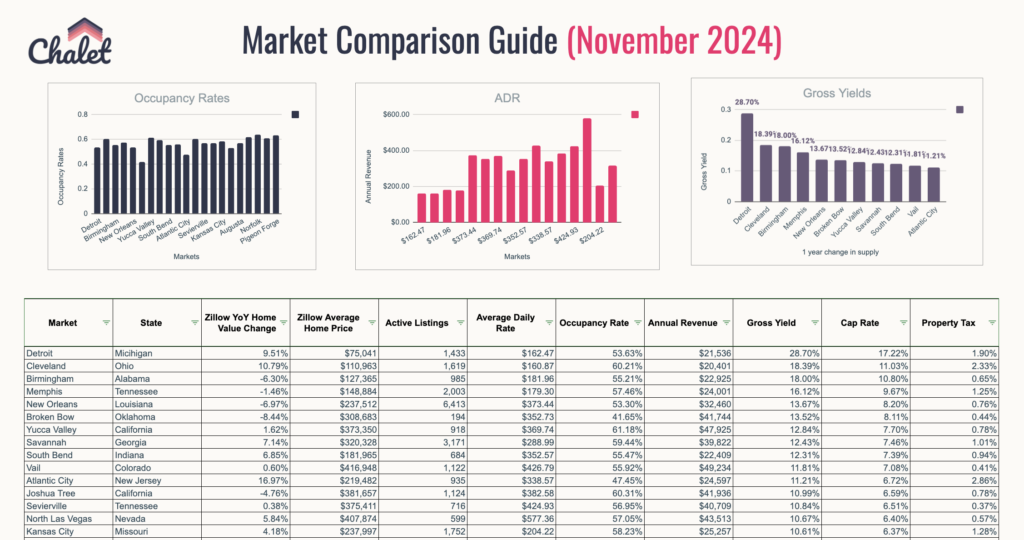Santa Rosa Beach, FL, located in the beautiful Florida Panhandle, is a popular destination for tourists seeking pristine beaches, charming communities, and a relaxing atmosphere. With its popularity, short-term rentals, such as those listed on Airbnb, have become increasingly prevalent.
However, with the rise in short-term rentals comes the need for regulation to ensure community standards and quality of life for permanent residents. This guide delves into the current short-term rental regulations in Santa Rosa Beach, FL, to help property owners and investors navigate the legal landscape.
Overview of Short-Term Rental Regulations
Santa Rosa Beach falls under the jurisdiction of Walton County, which has implemented specific regulations to manage the impact of short-term rentals on the community. These regulations are designed to balance the benefits of tourism with the needs of local residents.
Licensing and Registration
One of the primary requirements for operating a short-term rental in Santa Rosa Beach is obtaining the appropriate licenses and registrations. Property owners must:
- Obtain a Walton County Business License: This is mandatory for all short-term rental properties.
- Register with the Florida Department of Business and Professional Regulation (DBPR): This includes obtaining a vacation rental license.
- Collect and Remit Tourist Development Tax: Walton County imposes a tourist development tax on short-term rental properties, which must be collected from guests and remitted to the county.
Zoning and Occupancy
Walton County has established zoning regulations that dictate where short-term rentals can operate. These zoning laws are crucial to maintaining the character of residential neighborhoods while allowing for tourism growth.
- Zoning Compliance: Ensure your property is in a zone that permits short-term rentals. Specific zones may have different requirements and restrictions.
- Occupancy Limits: Short-term rentals are subject to occupancy limits based on the size and configuration of the property. This is to prevent overcrowding and maintain safety standards.
Top 200 Airbnb Rental Markets

Instantly compare top 200 short-term (Airbnb) rental markets in the US
Health and Safety Standards
To ensure the safety of guests and the community, short-term rentals must adhere to certain health and safety standards. These include:
- Fire Safety: Properties must have functioning smoke detectors, fire extinguishers, and clearly marked emergency exits.
- Building Code Compliance: Rentals must comply with local building codes, which may include structural integrity, electrical systems, and plumbing.
- Sanitation: Regular maintenance and cleanliness are required, including proper waste disposal and pest control measures.
Noise and Nuisance Regulations
To minimize disturbances in residential areas, Walton County has implemented noise and nuisance regulations for short-term rentals.
- Quiet Hours: There are designated quiet hours during which noise levels must be kept to a minimum. This is typically from 10 PM to 7 AM.
- Nuisance Complaints: Property owners are responsible for addressing complaints from neighbors regarding noise, trash, and other nuisances. Failure to do so can result in fines and penalties.
Enforcement and Penalties
Walton County takes enforcement of short-term rental regulations seriously. Non-compliance can result in significant penalties, including fines, suspension of rental licenses, and legal action. It is essential for property owners to stay informed about the latest regulations and ensure their properties meet all requirements.
Resources for Property Owners
For those looking to operate an Airbnb or other short-term rental in Santa Rosa Beach, several resources can provide guidance and support:
- Walton County Code Enforcement: The code enforcement office can provide detailed information on local regulations and assist with compliance.
- Florida Department of Business and Professional Regulation (DBPR): Offers resources and licensing information for vacation rentals.
- Walton County Tourist Development Council: Provides information on tourist development taxes and other requirements for short-term rental operators.
Conclusion
Navigating the short-term rental regulations in Santa Rosa Beach, FL, can be complex, but understanding and complying with these rules is essential for successful property management. By obtaining the necessary licenses, adhering to zoning laws, maintaining health and safety standards, and managing noise and nuisance issues, property owners can ensure their rentals provide a positive experience for guests and local residents alike.
References
- Walton County Code Enforcement. (n.d.). Retrieved from Walton County Code Enforcement
- Florida Department of Business and Professional Regulation (DBPR). (n.d.). Vacation Rentals. Retrieved from DBPR Vacation Rentals
- Walton County Tourist Development Council. (n.d.). Retrieved from Walton County TDC

